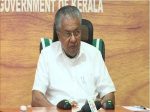
No threat to Earth as huge asteroid zooms past
PTI, Mar 22, 2021, 5:45 PM IST

Seoul: The largest asteroid to pass by Earth this year has made its closest approach, posing no threat of a cataclysmic collision but giving astronomers a rare chance to study a rock formed during the beginning of our solar system.
The asteroid was two million kilometres (1.25 million miles) away at its nearest, according to NASA — more than five times the distance between the Earth and the Moon but still close enough to be classified as a “potentially hazardous asteroid.”
NASA tracks and catalogues such objects that could potentially slam into Earth and unleash enormous destruction, like the massive asteroid hit that wiped out 75 per cent of life on the planet 66 million years ago.
Asteroid 2001 FO32, discovered 20 years ago, was too far to be that dangerous even as it reached its nearest point to Earth at around 1400 GMT Sunday, according to the Paris Observatory.
NASA said it was travelling at about 124,000 kph (77,000 mph).
“Oh yes, friends! Do you see this dot of light? This dot of light is the asteroid,” exclaimed astrophysicist Gianluca Masi of the Italy-based Virtual Telescope Project, which had trained its lenses on the rock on Monday soon after its nearest approach.
“How happy I am, how proud I am, how I excited I am… to bring this to you live,” said Masi as he displayed a grainy image of a pale dot during a YouTube broadcast.
Astronomers were hoping to get a better understanding of the composition of the estimated 900-metre (3,000-ft) diameter rock as it zoomed by.
“When sunlight hits an asteroid’s surface, minerals in the rock absorb some wavelengths while reflecting others,” NASA said. “By studying the spectrum of light reflecting off the surface, astronomers can measure the chemical ‘fingerprints’ of the minerals on the surface of the asteroid.”
Because of its elongated orbit, NASA said it “picks up speed like a skateboarder rolling down a halfpipe, and then slows after being flung back out into deep space and swinging back toward the Sun.”
The study of asteroids and comets that come this close to our planet — dubbed Near-Earth Object, or NEO — gives scientists a better understanding of the history and dynamics of the solar system.
It is also a valuable database of potential threats — an impact by a huge rock from space could devastate the entire planet.
Around 80 to 100 tonnes of material such as dust and small meteorites fall on Earth every day, according to NASA, posing no serious threat, but larger objects can cause major destruction as they possess immense momentum because of their high speed.
In 2013, an object close to 60 meters wide exploded over the Russian city of Chelyabinsk, unleashing 30 times the force of the nuclear bomb dropped over Hiroshima during World War II.
Experts estimate such events take place once or twice a century, and hits by bigger objects are even more infrequent.
NASA has said more than 95 per cent of near-Earth asteroids the size of 2001 FO32 or larger have been catalogued and none of them has any chance of impacting our planet over the next century.
The agency is studying potential ways to thwart an impact by an asteroid or comet, including slamming spacecraft into the object to divert it and even nuclear explosions as a last resort.
Udayavani is now on Telegram. Click here to join our channel and stay updated with the latest news.
Top News
Related Articles More

Google Wallet is now available for Android users in India

Technological advancements do not take away jobs, they create jobs

DRDO to collaborate with IIT Bhubaneswar for AI-driven surveillance, other projects

Can I take your order – and your data? The hidden reason retailers are replacing staff with AI bots

Boeing’s first astronaut launch postponed due to rocket valve issue
MUST WATCH
Latest Additions

JD(S) leader Kumaraswamy behind circulation of explicit videos, alleges Deputy CM Shivakumar

Demand for AC local trains surge as mercury rises in Mumbai

Man chops off tongue as sacrificial offering to god in Chhattisgarh

Congress intensifies criticism of Kerala CM over foreign tour

2 persons in Palghar post child pornographic content on social media, case registered






















